The Bookshelf
Instead of, once again, sitting down in front of the TV, why not pick up a book and immerse yourself in its colourful and intriguing world. Open a completely different reality, which will swallow you up completely and make you literally live a life together with its main characters. Do you not like to read? If not, perhaps you simply have not had the pleasure of indulging in some really interesting books or have not found your “own” bookshelf. We picked out six books, completely different in genre, which will suit both the novice reader and the sophisticated lover of literature. Enjoy!
Ari Turunen: “Don’t You Know Who I Am? The History of Arrogance”
Often times, having power, success and a high standing in society makes people arrogant, aloof and deaf to someone else’s opinion. The Finnish writer and researcher Ari Turunen talks about the powerful of this world, who suffer from their own snobbery. History confirms this, as arrogance, throughout time, has been the cause of ruin, a damaged reputation or death. With delicate humour, the author analyses a variety of situations, showing that the evil inclinations of human nature are very difficult to eradicate.
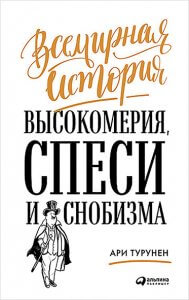
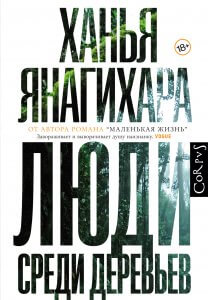
Hania Yanagihara: “The People in the Trees”
The book “A Little Life” by Hania Yanagihara came out more than a year ago, having produced a readership revolution. Some liked it, while others did not, but it certainly did not leave anyone indifferent. A terrible story about incurable childhood traumas was actively discussed. The People in the Trees is a novel that is not at all like the sensational “A Little Life”, but equally unique, unexpected and piercing. In 1950, Dr. Norton Perina went to a distant Micronesian island, where people lived who allegedly owned the secret of eternal life. It became possible for the scientist to find out the nature of this phenomenon. However, her great discovery would suddenly turn itself into a whole series of catastrophes – ecological, social and personal.
Umberto Eco: “The Spell of Satan”
The last book of Umberto Eco, “The Spell of Satan”, was published in Italy after the death of the writer. It includes essays and transcripts of the writer’s recent public appearances, as well as topics that haunted him in the last year of his life, like globalisation, the internet and its ambiguous role and the sadness that time is so quickly leaking away. In the title of the book, Eco quoted the “Divine Comedy” by Dante Alighieri. In fact, the line “Papé Satàn, papé Satàn aleppe” begins the seventh song of the first part (‘Hell’) of the poem. There are different versions of interpretation and translation of this line, which is famous for the non-obviousness of the meaning. Modern literary scholars believe that Dante had in mind the spell of Satan, which in the “Divine Comedy” is embedded in the mouth guarding the fourth circle of the hell of Pluto.
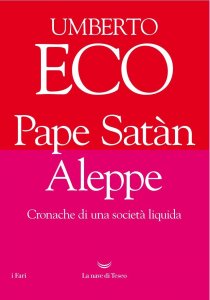
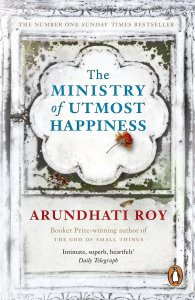
Arundati Roy: “The Ministry of Utmost Happiness”
After the debut of the very powerful novel “The Little God”, which delighted the reading world, the Indian author Arundati Roy did not write for 20 years. The second work of Arundati Roy, “The Ministry of Utmost Happiness”, is an amazing, multi-layered book; perhaps the best novel that you are lucky enough to read. The author managed to dispel the myth created by sentimental Bollywood and the ancient misconceptions of European travellers. India is not only “incense, jewellery and gods”. From the very first lines, one feels the terrible reality of being marginalised and the caste contradictions that still exist, despite a legislative ban. There is a sense of hopelessness that miraculously dissipates during further reading. After a few dozen pages, you cease to perceive India and its people as something exotic and you see, instead, reality.
Ann Patchett: “Commonwealth”
This is a novel about a moment in life that can become a turning point and affect the fate of dozens of our loved ones. It is a novel about memory and about love. Patchett beautifully builds her characters on the stage, immersed in darkness, and then alternately sends a beam of searchlight onto them. All of them, now mostly fifty years old, pass before the reader, talking about how they remember their past and what their present has become, and forcing us to follow them ten, twenty and even fifty-five years in time. All of this is so organically and naturally intertwined. In the end, this story, perhaps, says that everything is for the better or even that everything is exactly as it should be.
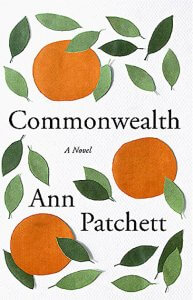
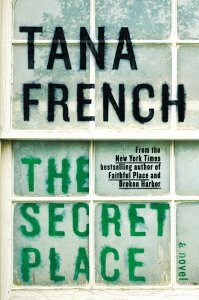
Tana French: “The Secret Place”
The subjects of Tana French‘s books are very dynamic and do not require a long walk on the edge before a careful plunge into the maelstrom of events. “The Secret Place” is one of six masterly written novels, which simply must take their place on the shelves of real lovers of a good detective story. Her stories are an amazing balance between a stressful thriller and a psychological novel, populated by living people. Despite the fact that French’s books are a kind of TV series about the everyday life of the Dublin police, you can start reading them from any volume, so you can start right from the “The Secret Place”.









